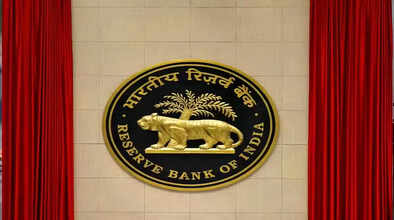If a third-party product is seen on the digital channels of banks, then there will be a ban, RBI proposes

RBI Guidelines: The Reserve Bank of India has proposed a ban on showing third party products on digital banking channels. According to the new draft, banks will be able to display such products only with the approval of RBI. The draft also includes guidelines such as explicit consent of customers, fraud risk management, and transaction limits. RBI has sought suggestions on this by August 11. This step has been taken with the aim of ensuring transparency and security in digital banking.
RBI Guidelines: The Reserve Bank of India (RBI) has issued a new draft directive aimed at enhancing consumer protection and transparency in digital banking services. This draft titled 'Reserve Bank of India (Digital Banking Channels Authorization) Directions, 2025' clarifies that the display of third party products and services on the digital platforms of banks will be prohibited.
Third party services can be shown only with RBI approval
The RBI draft states that the services of promoter groups or bank group entities (such as subsidiaries, joint ventures etc.) can also be displayed on digital channels only if they receive prior approval from the RBI. This is an attempt to protect customers from being offered unwanted products.
Customer consent and transaction control mandatory
The RBI has asked banks to ensure that clear and prior consent is obtained from customers to provide digital banking services. This consent should be kept on record. Also, no customer can be forced to adopt any digital channel for debit card or any other service.
Mobile banking facility required on all networks
According to the draft, mobile banking services (except mobile app) should be available to all mobile network users. That is, this service should be independent of the network, so that consumers can avoid discrimination.
Monitoring system for fraud control
Banks have also been instructed to analyze the transaction behavior of their customers and identify abnormal behavior and make arrangements for prevention. For this, they will have to develop a monitoring mechanism under the fraud risk management policy.
Transaction limit and control is the responsibility of the bank
RBI has also said that banks should fix transaction limits (such as daily, monthly or per transaction) as per their risk assessment. Along with this, there should be appropriate control and monitoring system to prevent fraud.
Prior approval of RBI will be necessary
If a bank wants to start transaction banking facility, then it will first have to apply to the regional office of RBI with the proposal of its board of directors. This permission will be given only on meeting the prescribed eligibility standards. This new proposal of RBI is an important step towards making digital banking more secure, transparent and consumer-centric. It will protect customers from unwanted marketing and will also fix the responsibility of banks.
Disclaimer: India Employment News does not give any suggestion for any purchase or sale related to the stock market. We publish market analysis based on market experts and brokerage companies. But take market decisions only after consulting certified experts.

